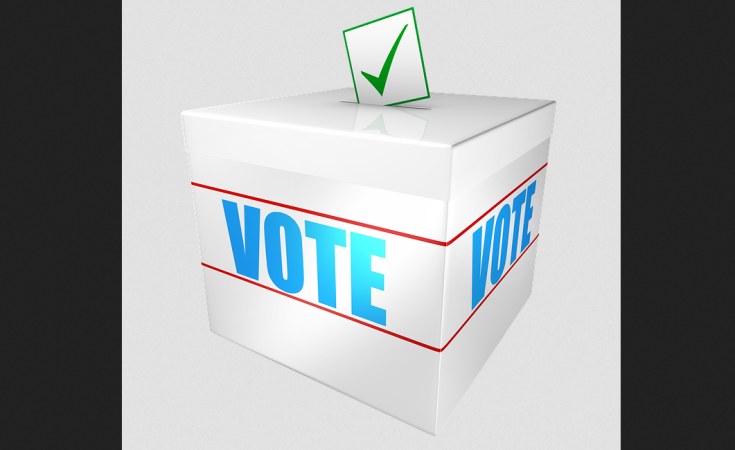.... The NEC's support for a manual voting system for the October 10 election comes despite the fact that most election results in the past decade have been contested in court over claims of rigging.
The Chairperson of the National Elections Commission has disclosed that while the country may be adopting the use of biometric technology for voter registration, the system would not be used for the conduct of the 2023 election.
The revelation from Davidetta Brown Lansanah comes as Liberia's manual voting systems have been prone to manipulations, human interventions and fraud, with many calling for the use of technology to transmit election results electronically, and reduce human interference.
In an address to the House of Representatives yesterday, Lansanah noted that while the Commission was ready to carry out the country's first "biometric voter registration as planned," there would be "no biometric voting; instead, the manual voting method would be employed."
The NEC's support for a manual voting system for the October 10 election comes despite the fact that most election results in the past decade have been contested in court over claims of rigging. The most noteworthy example was the 2017 elections, when the Supreme Court was obliged to prevent a constitutional crisis by deciding that the electoral fraud was "not egregious enough" to necessitate a rerun of the then-2017 presidential election results.
While the NEC'a reason for not adopting electronic voting is unknown, the Commission is however betting on the use of biometric voter registration process to conduct a more credible elections process, and hoping that the technology will help in producing probably the country's first of its kind voter roll that would be credible; free from double registrations.
Success of the technology will however depend on how widely voters accept. Some have expressed apprehension about the process, including unfounded fears that collection of data such as facial scans and fingerprints could cause cancer.
"Anyone who attempts multiple registration will be weeded out because of the fingerprint used during the process," Lansanah said, placing her bet on the biometric system to verify that those who are voting should be voting, and that they only vote once.
However, the NEC Chair has not yet addressed whether the more than 20,000 polling stations in the country will be interconnected to share registration centers to close any room for duplication. This silence has been so since the Commission announced its intention in 2022 to use biometric systems for the March 20 voter registration exercise.
The Commission has also not disclosed whether the system will be in place for verification on election day or the voter produced out of the produce will be used.
The NEC's use of biometric systems, being the first instance in Liberia, is not the first in Africa to go high-tech with voter registration. Election management bodies in countries such as Nigeria, Kenya and the Democratic Republic of Congo already have adopted the finger-print scanning technology to help prevent electoral fraud.
Like Liberia, these countries share a history of bloated voter registrations and varying levels of disputes about election results. And, even though Liberia's 2017 elections were deemed free and fair by international observers, politicians expressed concern about the final voter roll, which were marred by double registrations.
It comes as NEC for years has been under pressure to dash its optical manual registration (OMR) system. The OMR system, for many, does not improve the accountability and transparency of electoral processes since the final voter roll is usually tainted by controversy and mistrust.
Success of the biometric voting system will however depend on how widely voters accept it. Some have expressed apprehension about the process, including unfounded fears that collection of data such as facial scans and fingerprints could cause cancer.
Meanwhile, the conduct of the process which is slated to commence on March 20, is likely to face some hitches as the company selected to carry out the exercise is unable to pre-finance as required in the bid document. A key requirement stated in the bid document for the almost US$12 million contract is that the company must demonstrate the ability to pre-finance the process.
This has forced the NEC to rely on the government to provide US$4.5 million to the vendor to bring in the materials for the process. Phase one of the process, which targets six counties, is expected to end on April 9.
According to the payment terms stated in the tender document, Section ITB 11.1(h) to be exact, the payment terms states that 50% should be made available to the winner of the bid after the completion of the voter registration exercise; 25% after the exhibition, and 25% after the elections.
These requirements were the detailed payment terms as indicated by NEC in their tender.
But as LAXTON has claimed that it is unable to pre-finance biometric voters registration, the Chairperson of the NEC is hinting that the process might be further delayed if the government does not provide the funding.
"To date, we received 14 million in both US and Liberian dollars. There is a deficit of US$4.5 million. This is outstanding." Lansanah said in a remark a few days before her appearance at the House yesterday . The reason why it is critical is that, according to our contract, we have to provide a letter of credit to the bank for the Laxton Group."
"Maybe I should not say it, this money, the balance money, If not received in a few days, the delivery of biometric equipment to the country will be stalled and if it is stalled it means that there is a potential to push forward the voter registration."


